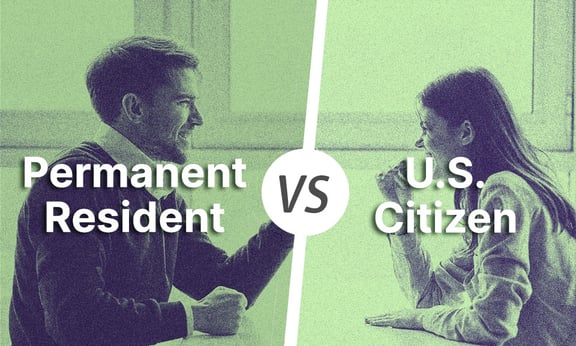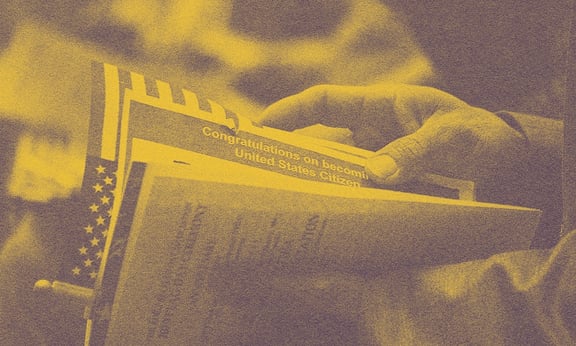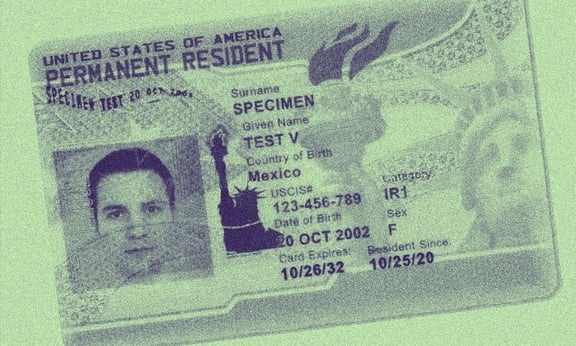For skilled professionals seeking a permanent move to the United States without the complications of employer sponsorship, the EB-2 National Interest Waiver (NIW) provides one of the most strategic immigration options available. This category within the employment-based Green Card system is designed for individuals whose work substantially benefits the United States and serves its national interests.
Unlike other employment-based categories that require a job offer and labor certification (PERM), the NIW allows applicants to request a waiver of these requirements. If approved, they can self-petition—meaning they do not need an employer sponsor—and pursue their Green Card independently.
The EB-2 visa applies to professionals with advanced degrees or exceptional ability in fields such as science, business, or the arts. The NIW, a subcategory of EB-2, recognizes individuals whose proposed work holds substantial merit and national importance—so much so that waiving the standard job offer and PERM process would benefit the U.S. as a whole.
What makes the NIW particularly appealing is its flexibility. It can be applied to professionals in a wide range of industries: from engineering, healthcare, and research to clean energy, public policy, and entrepreneurship. Unlike the EB-1A Green Card, which demands proof of extraordinary ability at the very top of one’s field, the NIW focuses more on the impact and importance of the work itself.
To qualify, applicants must meet both the general EB-2 requirements and the three-part legal test established in a key USCIS decision known as Matter of Dhanasar.
Eligibility
Before the NIW can even be considered, you must qualify under the broader EB-2 framework. This means you must either:
- Hold an advanced degree (master’s or higher), or a bachelor’s degree plus five years of progressive post-baccalaureate experience; or
- Demonstrate exceptional ability in your field, with expertise that is significantly above the ordinary standard.
Once this initial requirement is met, your case must then satisfy the three NIW-specific criteria established in Matter of Dhanasar.
The Three NIW Criteria
1. The Proposed Endeavor Has Substantial Merit and National Importance
Your intended work in the U.S. must have clear value and significance. This merit can stem from contributions in science, technology, entrepreneurship, healthcare, education, or other sectors that create tangible economic or social benefits.
“National importance” does not mean your work must directly influence government policy. It simply needs to demonstrate broader impact—such as advancing innovation, addressing public health issues, or contributing to regional economic growth.
For example, a public health expert developing disease prevention models or a tech entrepreneur improving cybersecurity could both qualify under this standard.
2. You Are Well Positioned to Advance the Proposed Endeavor
This criterion evaluates your personal ability to carry out the proposed work successfully. USCIS will look at your academic background, professional experience, track record, and reputation in your field.
Evidence can include:
- Degrees, certifications, and licenses
- Publications, patents, or media coverage
- Expert letters of recommendation
- A business or research plan demonstrating how your work will continue in the U.S.
The goal is to show that your achievements and resources make you uniquely capable of advancing your endeavor.
3. Waiving the Job Offer and Labor Certification Benefits the United States
Finally, you must prove that granting the waiver itself serves the national interest.
This means showing that requiring a traditional employer and PERM process would limit or delay work that benefits the U.S. more if undertaken immediately.
If your field is experiencing rapid innovation, labor shortages, or urgent national demand, USCIS may find it in the public’s best interest to waive these requirements and allow you to continue your work without interruption.
A successful NIW case depends on both the quality of your documentation and the coherence of your overall strategy.
An effective petition typically includes:
- A comprehensive personal statement or cover letter explaining your proposed work and its national significance
- A detailed plan outlining how your work will be pursued in the U.S.
- Proof of credentials, such as diplomas, licenses, and employment history
- Letters from experts attesting to your qualifications, impact, and credibility
- Evidence of achievements, such as publications, patents, or media recognition
- If applicable, a business plan highlighting job creation or economic contributions
Each document should clearly connect back to the three NIW criteria—demonstrating not only your achievements but also their relevance to the national interest.
Common Pitfalls and How to Avoid Them
Many NIW applications are denied due to vague project descriptions, lack of evidence, or failure to prove national importance.
To avoid these mistakes:
- Develop a cohesive narrative that ties your background, expertise, and proposed work together.
- Avoid generic statements—show specific, measurable contributions and real-world impact.
- Emphasize your unique qualifications rather than general professional experience.
- Ensure all letters and documents align with your petition’s central argument.
The NIW process rewards clarity and substance. If your evidence feels speculative or disconnected, USCIS may find the petition insufficient.
Also read this blog too: EB-2 NIW Green Card: Key Insights and FAQs
The NIW is an ideal option for professionals who combine strong credentials with work that benefits the public or advances U.S. priorities.
This includes researchers, physicians, engineers, policy experts, educators, entrepreneurs, and innovators across emerging industries such as AI, biotechnology, renewable energy, and cybersecurity.
Because the NIW allows self-petition, it offers freedom and flexibility for professionals who want to live and work in the U.S. without being tied to a single employer or job offer.
The EB-2 National Interest Waiver is more than an immigration category—it’s a recognition of your potential to contribute meaningfully to the U.S. economy and society.
To succeed, your petition must combine a strong professional record, clear documentation, and a compelling story that links your work to the national interest.
At Grape Law, we have extensive experience helping clients secure approval for EB-2 NIW petitions. Our team of attorneys crafts customized strategies, ensuring every application meets the highest evidentiary standards.
📩 To learn whether you qualify for the EB-2 NIW—or to begin building your case—contact us at info@grapelaw.com.
We’re here to guide you every step of the way toward your permanent U.S. residency.
Categories










